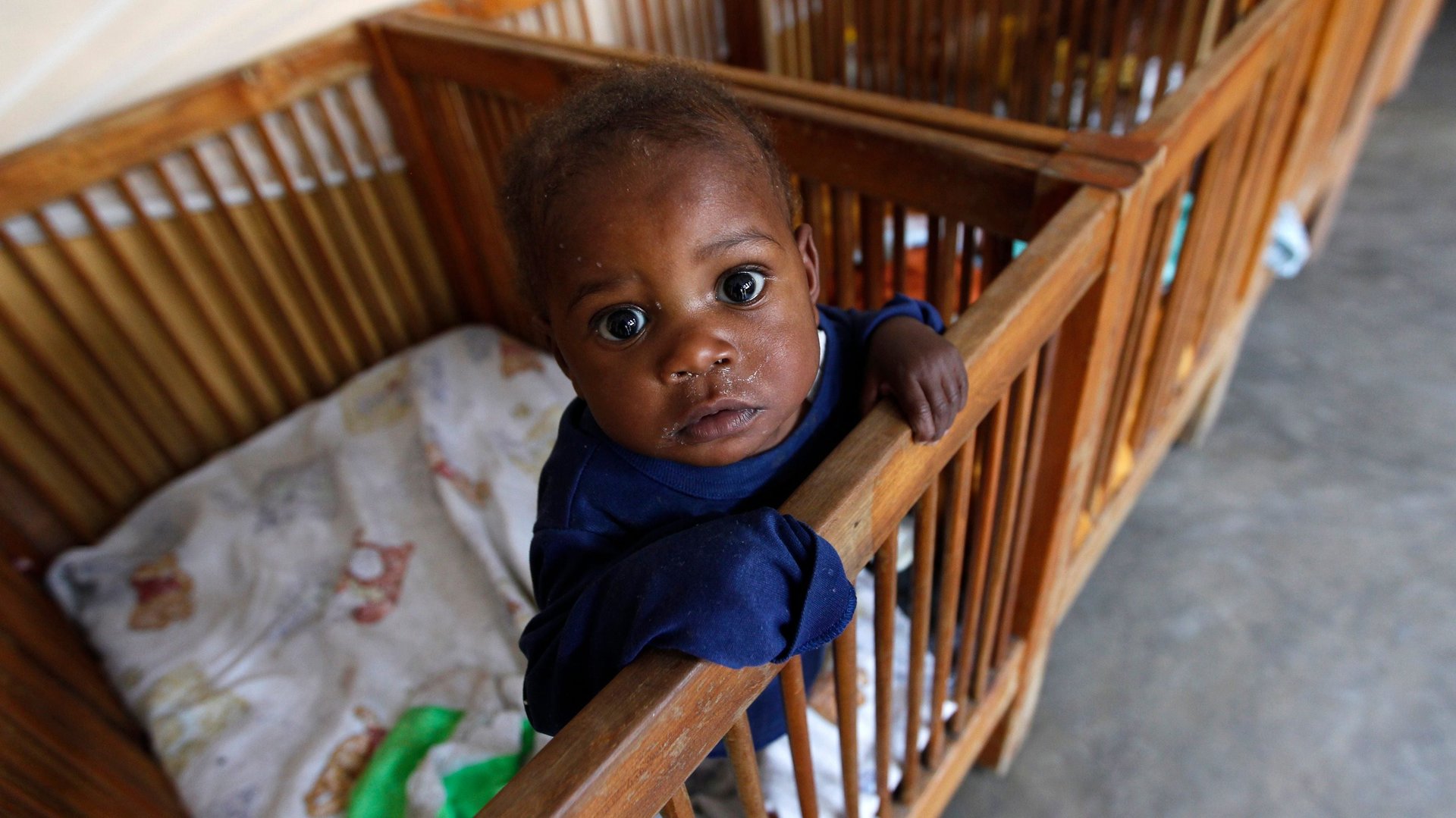British charities can’t help their White Savior Complex when it comes to Africa
We see the pictures year after year after year—different people, but the same picture. Set somewhere in a sub-Saharan country, a white celebrity holding one or sitting amongst several local children in Africa, promoting a cause or to raise funds for a development program or NGO.


We see the pictures year after year after year—different people, but the same picture. Set somewhere in a sub-Saharan country, a white celebrity holding one or sitting amongst several local children in Africa, promoting a cause or to raise funds for a development program or NGO.
Research indicates that in the United Kingdom, one of the most generous countries in the world when it comes to charitable donations, this use of celebrity status to raise funds is particularly effective.
Last week, a British journalist named Stacey Dooley was recruited by the UK charity Comic Relief to make a film in Uganda highlighting how they had invested donations. While there, Dooley took a selfie with a child and posted it on her social media feed, captioned “OB.SSSSESSSED”. This picture piqued the ire of a British member of parliament, David Lammy, who called the picture out as “white saviors…perpetuating tired and unhelpful stereotypes”.
Comic Relief’s response was instant and worthy of note. They issued a statement unapologetically defending Dooley and accusing Lammy of not having responded to their offer following his previous criticisms to make a film for them. It transpired that Lammy, who is black, had in fact responded to them and had stated his job as a politician is to raise issues and not make documentaries about countries he knows nothing about.
While Comic Relief has raised over £1billion ($1.6 billion) for charitable causes in the UK and across the world (around 30% of their grant-giving actually goes to British charities and NGOs, especially to assist the over 4 million children in the UK who live in poverty), its Twitter exchange with Lammy will probably not be held up as a shining example of sensitive corporate communications.
It gave a distinct impression of being more interested in supporting a celebrity than understanding the issues being raised. Presenting poverty in Africa through a monocular lens, without recognizing the agency of local people, and wittingly or not, allowing the people to become props in celebrity image-making, is unhelpful and ultimately counterproductive, placing them squarely in the mire of what the Nigerian-American writer Teju Cole described as the White Savior Industrial Complex.
That this issue has divided opinion in the UK so starkly is in itself, indicative. Many people have accused Lammy of racism, several have threatened to immediately cease supporting any causes that donate to Africa. On the other hand, others have highlighted that this is not an issue unique to Comic Relief but is endemic in the UK charity sector, especially reflecting the lack of ethnic diversity in senior management across the board. As a point of disclosure I have worked for organizations that have been recipients of grant funding from Comic Relief and I have also previously participated in one of their strategic initiatives aimed at the African diaspora.
“Previous”
This is not the first time Comic Relief has been pulled up on this issue—just over a year ago, it was “awarded” the ignominious Rusty Radiator award by Radi-Aid (a campaign created by the Norwegian Students and Academics’ International Assistance Fund) for a film described as “poverty porn” by the judges.
Responding at the time, Comic Relief had resolved to do better. It is not clear what has prompted the reversal of that decision, but the fundraising landscape in the UK has become far more challenging in the past year and they may have felt that this is not the time to ditch the tried and tested, regardless of its ethical or ideological limitations.
Research by RadiAid and University of East Anglia into how African aid-receiving countries perceive and understand international NGO media campaigns portray a more nuanced picture across the continent.
The research found that while the vast majority of respondents said they would “choose negative imagery for a fundraising advert in order to inspire donations”, they also emphasized that “dignity and respect must be underlying elements in the portrayal of people in INGO imagery”, and “highlighted the need for more diversity … generally showing that people have something to offer”.
Unfortunately, many African communities will still require an element of development assistance until such time as more sophisticated alternatives to the aid paradigm are embedded in national and local economic systems. International NGOs like Comic Relief could have a critical role to play in that shift. Acknowledging that the ends of raising money do not always justify the means that perpetuate stereotypes would be a useful step in the process.
Sign up to the Quartz Africa Weekly Brief here for news and analysis on African business, tech and innovation in your inbox